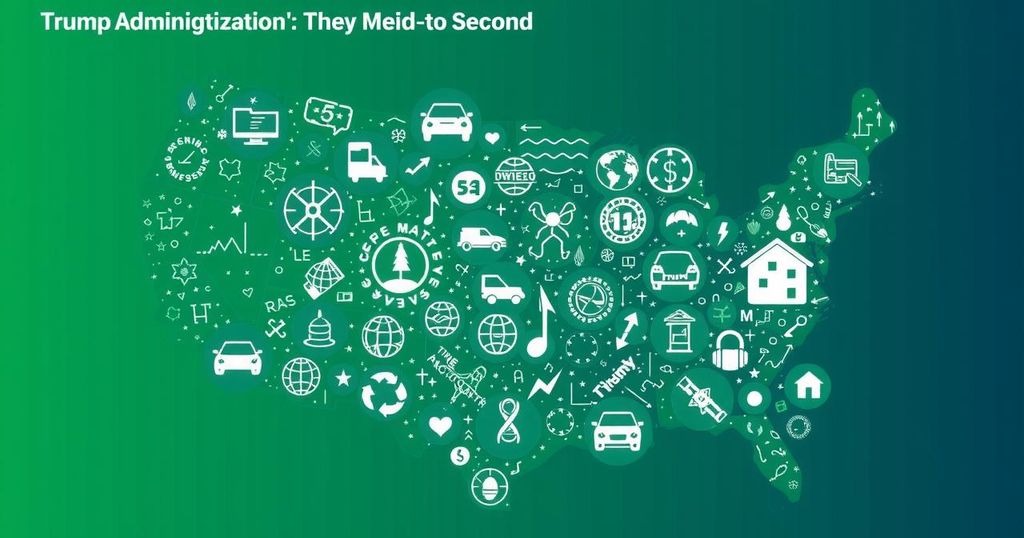A second Trump presidency may lead to the rollback of key environmental regulations and a refocus on fossil fuels. Experts from UCLA project that California will actively resist federal changes through legal channels and innovative state policies. The court system is likely to play a crucial role in maintaining environmental protections, as the transition to clean energy is expected to persevere despite potential obstacles. Withdrawal from international climate agreements could further diminish U.S. leadership in global climate efforts.
The potential impact of a second Trump administration on environmental and climate policy raises significant concerns, particularly regarding the rollback of existing regulations and a shift in focus towards fossil fuels. Experts from UCLA, Cara Horowitz and Ann Carlson, provide insights into California’s proactive stance against federal rollbacks, the importance of experienced leadership in environmental agencies, and the implications of litigation surrounding environmental laws. Moreover, they discuss the inherent challenges a new Trump administration would pose to the ongoing clean energy transition, while also considering the implications of U.S. withdrawal from international climate agreements. Ultimately, both experts agree that despite potential slowdowns, the clean energy transition is robustly underway and will persist regardless of federal policy changes. Horowitz asserts that California is well-equipped to challenge federal policies, stating that it will lead efforts in climate talks and enforce compliance through legal action. Meanwhile, Carlson emphasizes the necessity for experienced appointments to ensure effective governance within environmental agencies. They further indicate that if Trump’s administration mirrors its predecessor, it may struggle with compliance to federal environmental laws, resulting in significant litigation. The authors highlight the resilience of the renewable energy sector and the critical need for the U.S. to maintain a role in international climate initiatives to reinforce global climate cooperation. Concerns regarding potential U.S. withdrawal from international agreements such as the Paris Agreement are noted, with conjectures that such actions would diminish U.S. influence in global climate discussions and cede leadership to other nations, particularly China. The continued expansion of renewable energy generation, supported by significant investments from automakers and policy frameworks like the Inflation Reduction Act, signifies a broader trend that may mitigate the direct impacts of federal policy shifts.
The transition towards clean energy and environmental conservation has gained momentum in recent years due to growing awareness of climate change. As international commitments like the Paris Agreement aim to unify efforts to mitigate climate impacts, domestic policies in the U.S. under various administrations significantly influence this journey. Under a potential second term for President Trump, experts anticipate a regression in federal environmental protections, prompting states like California to navigate and push against these changes, thereby shaping the national climate policy landscape. Collaborative efforts amongst states, legal actions, and continued commitments to renewable energy sources reflect a complex interplay of resistance against potential rollbacks.
A potential second Trump presidency could significantly alter the landscape of environmental and climate policy, potentially hindering progress made toward renewable energy and international cooperation on climate change. However, experts believe that California’s proactive measures and the resilience of the clean energy sector will remain vital in counteracting federal policy reversals. The implications of leadership appointments and ongoing litigations will also play crucial roles in determining how effectively environmental regulations are upheld or challenged within the legal system. Ultimately, while setbacks may occur, the broader transition towards clean energy is expected to continue vigorously.
Original Source: newsroom.ucla.edu






